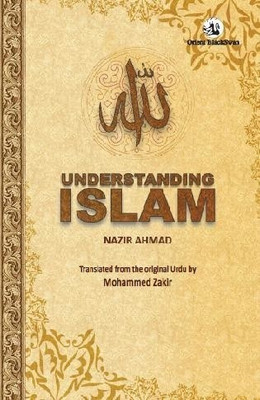Understanding Islam(English, Hardcover, Ahmad Nazir)
Quick Overview
Product Price Comparison
Understanding Islam is a translation of Ijtihad (Striving) written in Urdu by Nazir Ahmad (18361912) a leading Urdu writer, social and religious reformer. The original work grew out of a response to the question, Why am I a Muslim? which had obsessed the author. Nazir Ahmad critically examines questions that he felt had perhaps been inadequately understood by his co-religionists, and suggested areas where a change in their outlook might be conducive to the true spirit of Islam. This book is a valuable introduction and guide to the essence of Islam. Mohammed Zakirs translation is true to the original, and retains its flavour. About the Author Nazir Ahmad (18301912) was a leading Urdu writer who was also a social and religious reformer, and a prominent scholar. He was a pioneer of Urdu literature and published books in varied genres. His Mirat-ul-Uroos, published in 1869, is considered to be the first novel in Urdu. Ahmad came from a distinguished family of religious scholars, maulavis and muftis of Bijnor and Delhi. Mohammed Zakir was born in Delhi and educated at St. Stephens College, Sri Ram College of Commerce and Zakir Husain Delhi College, University of Delhi. He retired as Professor of Urdu after four decades of service in the Jamia Millia Islamia, Delhi. His main interests have been translation, literary criticism and Urdu linguistics. Table of Contents Acknowledgements Translators Introduction Nazir Ahmads Introductory Remarks Islamic Beliefs Knowing God Oneness of the Creator Polytheism: Attributing Partners to God Existence of God Conveniences in Islam and Inconveniences in Other Religions Oneness of God is the Essence of Religion Sense of Good and Bad is Natural Prophethood Truthfulness of the Prophet of Islam Miracles and Prophecies The Real Aim of the Revelation of the Quran An Advice to the Maulvis of Today Asceticism Other Religions and the Doctrines of Islam Reforming the Conditions of Muslims Religion and this World are not Inconsistent Appendix I Appendix II Select Glossary and Notes Bibliography


